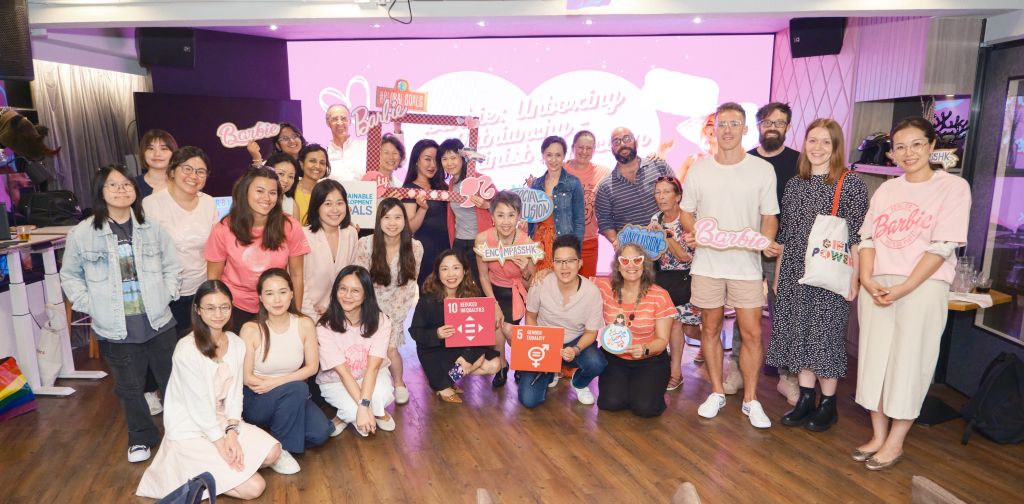Sep 20, 2023 event recap written by Aimee Lam
In the captivating climax of the Barbie movie, Gloria’s character declares in her monologue, “It is literally impossible to be a woman. You are so beautiful and so smart, and it kills me that you don’t think you’re good enough. Like, we have to always be extraordinary, but somehow we’re always doing it wrong.” This quote encapsulates the essence of the Barbie movie, which has achieved iconic cultural status since its release on July 21st. This cinematic gem provides a blend of serious reflection, satire, and wit, offering a thought-provoking commentary on the enduring presence of patriarchy through the lens of Barbie and Ken.
To discuss the new Barbie movie, Encompass HK had the honour of hosting an event to dissect the insightful commentary embedded in the film. Our participants arrived adorned in neon and pastel pink, embracing the vivacious spirit of Barbie. First, the three speakers, all attired in shades of pink, introduced themselves. Among them is Benita Chick, the founder of Encompass HK, who is deeply passionate about issues of diversity and inclusion. Brian Henderson, a board member of The Women’s Foundation (TWF) and the co-founding chair of the TWF Male Allies initiative, brought his perspective to the discussion. Fern Ngai, a board director and advisor to numerous NGOs and social enterprises advocating social inclusion, added valuable insights.
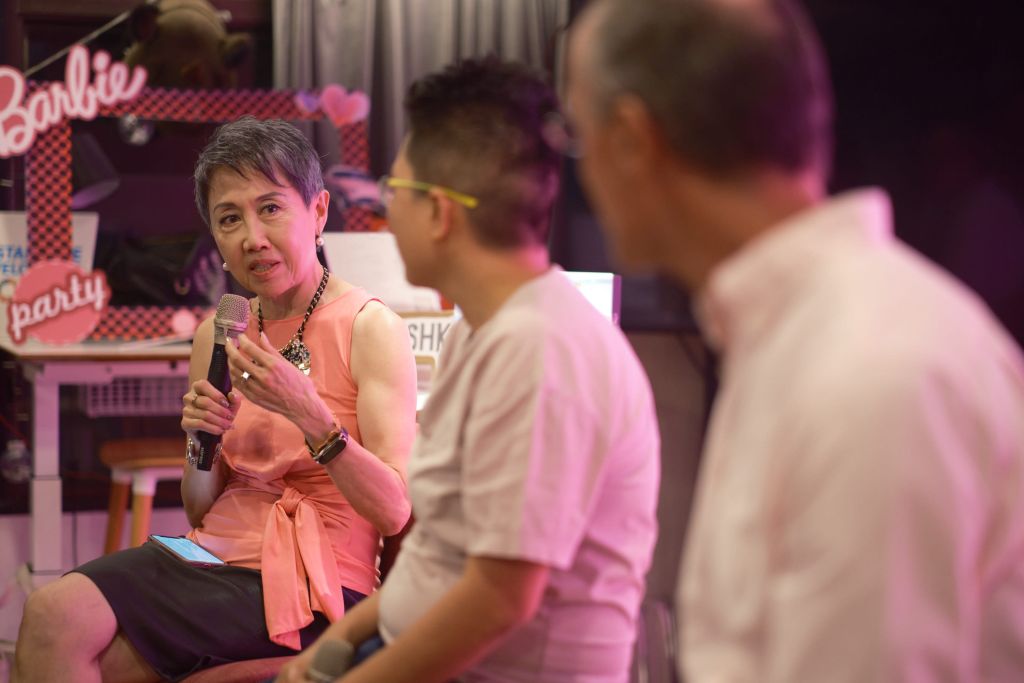
We initiated a Menti survey to start the event to stimulate discussions and encourage thoughts. Questions like, ‘Is it possible to have a truly ideal egalitarian world in which all people are equal and deserve equal rights and opportunities?‘ ignited passionate debates on the feasibility of this vision. Another question was, ‘What words come to mind when you think of the patriarchy/matriarchy/feminism?‘ The responses yielded terms such as stereotypes, systemic, power, bias, and ‘Kenough.’ Following the survey, Benita delivered a presentation on Barbie’s history, illustrating its intersection with the fourth wave of feminism.
The ensuing panel discussion commenced with a lively exchange between Fern and Brian. Beginning with a broad inquiry into toxic masculinity and hyper-femininity, Brian likened toxic masculinity to a ‘manbox,’ where emotional expression is stifled, and stereotypes dictate behaviour. This suppression of expression often extends to women, who sometimes feel compelled to adopt masculine traits to succeed in male-dominated roles, perpetuating the cycle.
Fern then shared her childhood experience with Barbie and the film’s message. While she hadn’t played with Barbie as a child, the movie has been a source of inspiration for her. Barbie has metamorphosed into a feminist and cultural icon, showcasing women’s merit in traditionally male-dominated professions like President Barbie or Nobel Peace Prize Barbie. This empowers girls confined to limited roles, a particularly pressing issue in traditional Chinese culture.
The discussion seamlessly transitioned to the Barbie movie itself. This clever, humorous, and entertaining film satirically transposes real-world stereotypes into the Barbie universe. It contrasts how women are treated as accessories to men in the real world, with Kens being treated as accessories to Barbie in her world, incapable of anything beyond the ‘beach.’ This stark portrayal of stereotypes highlights the enduring barriers women face despite slow progress toward gender equality.
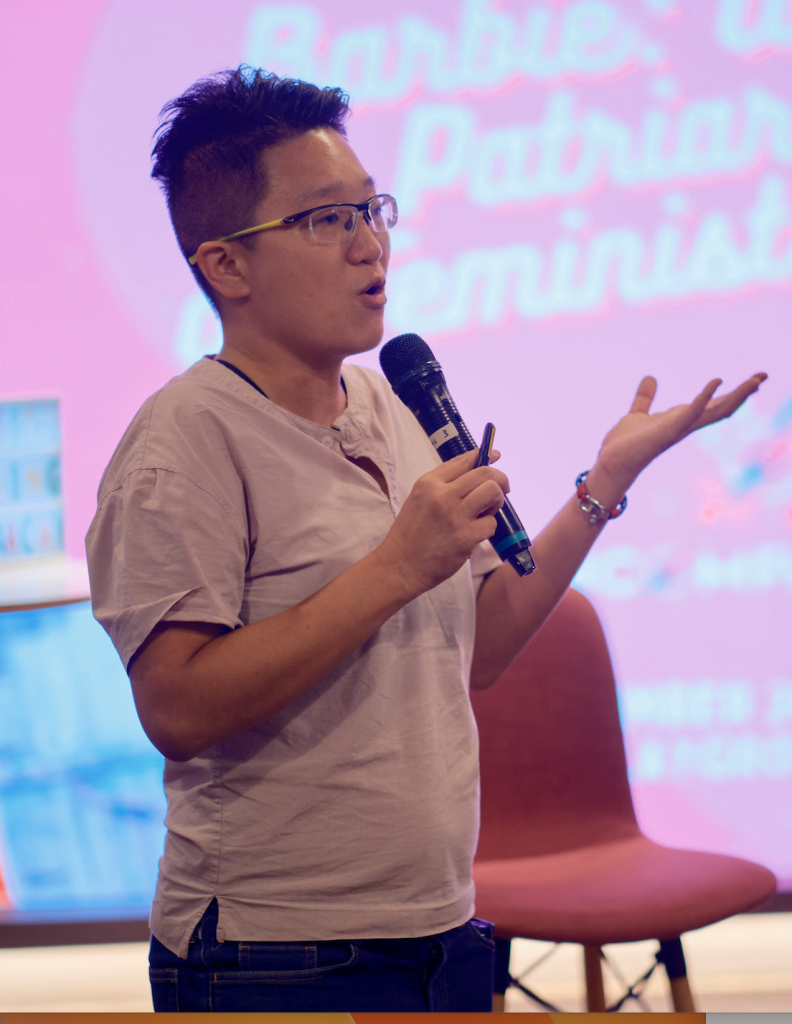
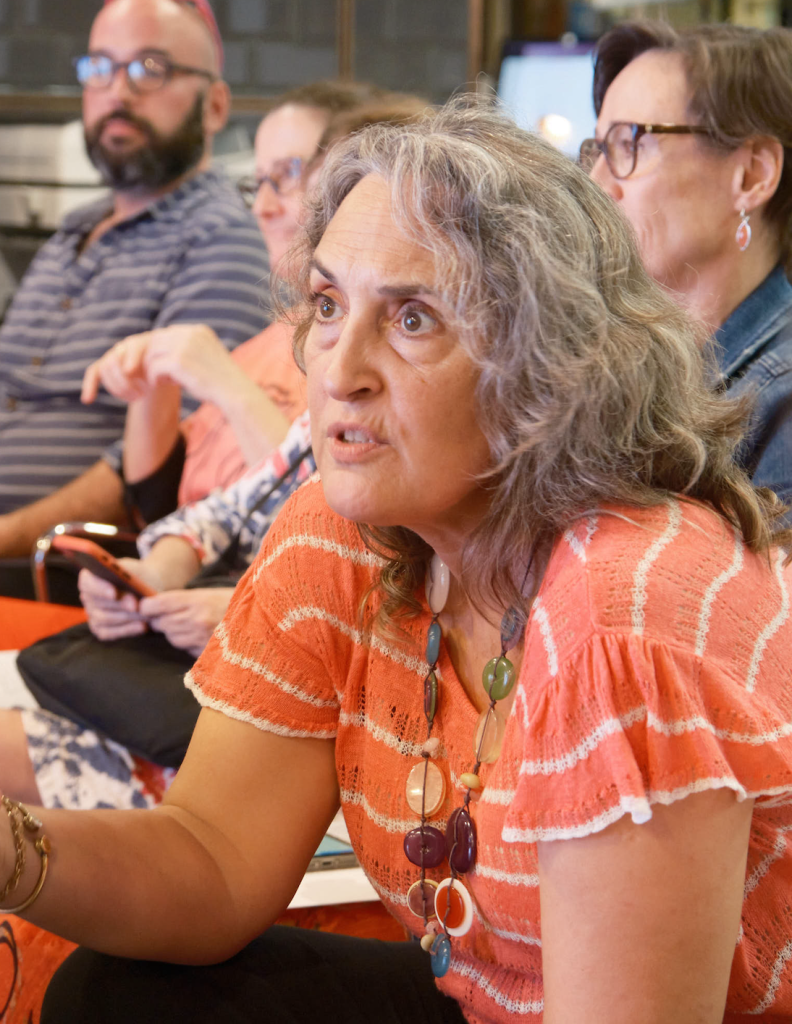
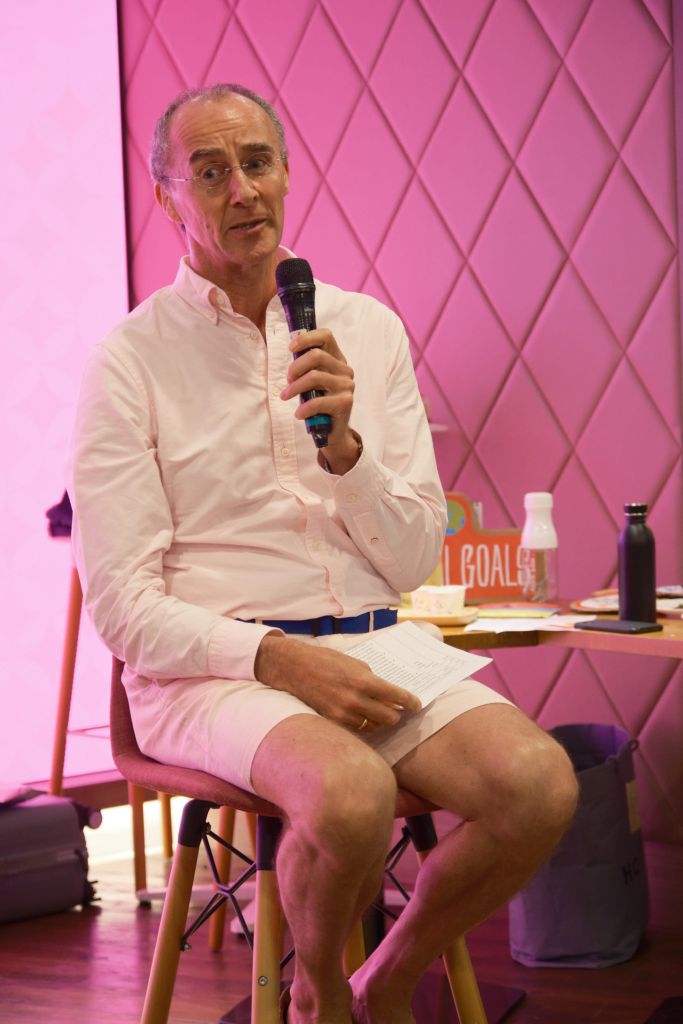
Remarkably, while employing light-hearted humour, the Barbie movie has sparked controversy and illustrated its central message. Some men perceive it as a demeaning message towards their gender, ironically underscoring how patriarchal society can harm men and women. The movie portrays the Barbie world as a zero-sum game where women’ win’ while men ‘lose.’ In the patriarchy, power is bestowed upon men solely because of their gender, whereas in the matriarchy of Barbie’s world, women earn their place through merit and hard work.
The movie also touches on deeply ingrained systemic biases rooted in gender, which are instilled in children and shape expectations for each gender. A participant shared an incident where her 14-year-old son questioned why feminists were seen as ‘man-haters,’ revealing the misunderstanding surrounding feminism. Many participants expressed their dissatisfaction about how the word ‘feminism’ has lost its true meaning. It was emphasized that feminism is about achieving gender equality, not discriminating against men. “It’s about leaving no one behind in the pursuit of social justice“, said another participant. All the heads in the room nodded in agreement at this statement.
Continuing the discussion, Benita explored the concept of allyship and how it is portrayed in the movie. The speakers highlighted that we all carry deep-seated biases, and genuine allyship isn’t about imposing one’s views on women. Brian reminded us that true allyship is recognized when women acknowledge it.
Gloria’s monologue encapsulates this sentiment: “I’m just so tired of watching myself and every single other woman tie herself into knots so that people will like us“. Women support women, and that should be recognized as real allyship.
The concept of ‘girl power’ can be polarizing. Some support and help women genuinely, while others do it for social recognition, resume building, or personal gain. Finding male allies can also be challenging, as some remain unwilling or uncomfortable, believing it isn’t their issue.
The lack of awareness about patriarchal matters is evident, with some viewing the movie purely as entertainment or dismissing it as exaggerated. Its mixed reactions further prove the point and message of the movie that people are uninformed, oblivious, and ignorant of the patriarchy.
To round off the discussion, our speakers summarized the discussion by highlighting the pervasive injustice and detriment caused by patriarchy. It was underscored that the attributes considered ‘likeable’ in men are often heavily weighted against women. Harmful stereotypes and ‘manboxes’ change how women and men can act and express themselves.
